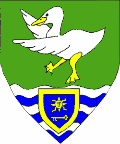
Ælflæd of Duckford
NEW at the end, note about "really," and letter-writing and other links.
EVENT ANNOUNCEMENTS need to be fun. They need the full journalistic who, what, when and where, and the specific information required by the Society (address of the site, directions, starting time, whether the site is dry, who exactly is the autocrat, and which group is sponsoring, and whatever else the seneschal and chronicler direct you to include). If they're completely dry and boring, you will have a smaller turnout than you will have if the article is enticing, inspiring, intriguing, and amusing.
DOCUMENTATION for A&S or other purposes needs to be easily and quickly readable. It's no time for long artsy sentences or complicated theories. Tell what you know to be period and how you know it. Tell what exceptions you have made and why. Have clear breaks between sections so the judges can scan and then re-locate things they want to read again.
HOW-TO ARTICLES can use humor almost as much as they need clarity. A light and personable tone will calm the fears of intimidated readers. Try to separate the actual directions from the side commentary in some fashion. Assume the person following your directions knows very little; the experienced can skip the easy parts, but beginners can't fill it in on their own if it's not there.
REPORTS should make sense ten years later, so write for historians, not just for the officer to whom it's going. Reports should include dates (with the modern year in there at least once), full names, and clear particulars. "More than last year" isn't real information; use numbers.
SCROLL TEXTS are formal letters from the Crown to the people of the kingdom. They are proclamations, and there are many period examples and traditional forms (although by the time we take out the religious bits there's not a lot left). The kingdom scribe has default scroll texts that should be used until and unless a scribe has seen, read and thought about enough different texts to mess with it. Changes should be approved by the scribe's office. Anyone unsure of earlier English forms shouldn't rewrite any texts without close help by someone who is familiar with period usage. Don't use out-of-period words and phrases if they can be avoided.
CEREMONIES are the hardest of all. Ceremony should be heraldically correct, theatrically workable, historically sound, period in tone, and true.
By "theatrically workable" I mean can the words be understood aloud? Some phrases are fine on paper, but don't work well loudly spoken. Try the phrases aloud. And where are the "props"? Once we left the sword "onstage" when it needed to be off (or vice versa)—big oops. Can people see? Can they hear and understand? If not, the ceremony isn't well designed and will not serve its purpose as well as it should.
By "true," I mean true to the purpose and laws and traditions. They need to be educational, illustrative, not misleading. It is through ceremonies that many SCA members learn about what it means to be king, what it means to be a peer, and what awards are for. If ceremonies don't reflect what is true and traditional, they become misinformation. Confusion and unrest can follow from people misunderstanding the responsibilities of peers from seeing an aberrant ceremony. A crown tournament that doesn't clearly reveal to the spectators the several ways in which tradition and law were followed will fail to teach them law and tradition.
The reason people travel to and pay to attend coronations, crown tournaments and other formal courts and tournaments is so that they will be witness to the business of the kingdom. Those events are required to take place publicly, and so it follows that those in attendance should see the crowning, should hear the oaths, should understand the words of the sword oath, etc. They should understand how the lists are run and all can bear witness to the rightness and fairness, and all can learn how it should be done.
Because of writers, SCA members can be lured in by an event announcement, wear clothing and sit on stools and eat food they have prepared from written directions, hear beautiful scroll texts in ceremonies that make clear what the person has done to deserve recognition, and they can learn how and why people become Kings, Queens, Knights, Laurels and Pelicans.
Writing is rarely recognized for the contribution and art that it is. When you do hear well-composed and thoughtfully prepared ceremonies that add to the period atmosphere and the education of the populace, remember that writing is a learned and practiced art with depth and subtlety that can affect the kingdom's peace and future.
| REALLY! I was reading along in a text written in English in 1478, and came upon the phrase “…for which I am really glad.” Really glad? Cool! So I mentioned this to Aindrea who said the scroll text naming her a Countess “really ennobled” her. The phrase had been adapted from the “Creation of Edward Courtenay as Earl of Devon–Letters Patent” of 1553. The phrase is “…we have marked, invested and really ennobled…” |
Words themselves, and Bathhouses
Language Use (five articles by AElflaed)
On Writing Articles by Dagonell CollingwoodMedieval Missives: Aids to Letter-Writing by Caryl de Trecesson, of Carolingia in the Eastrealm.
